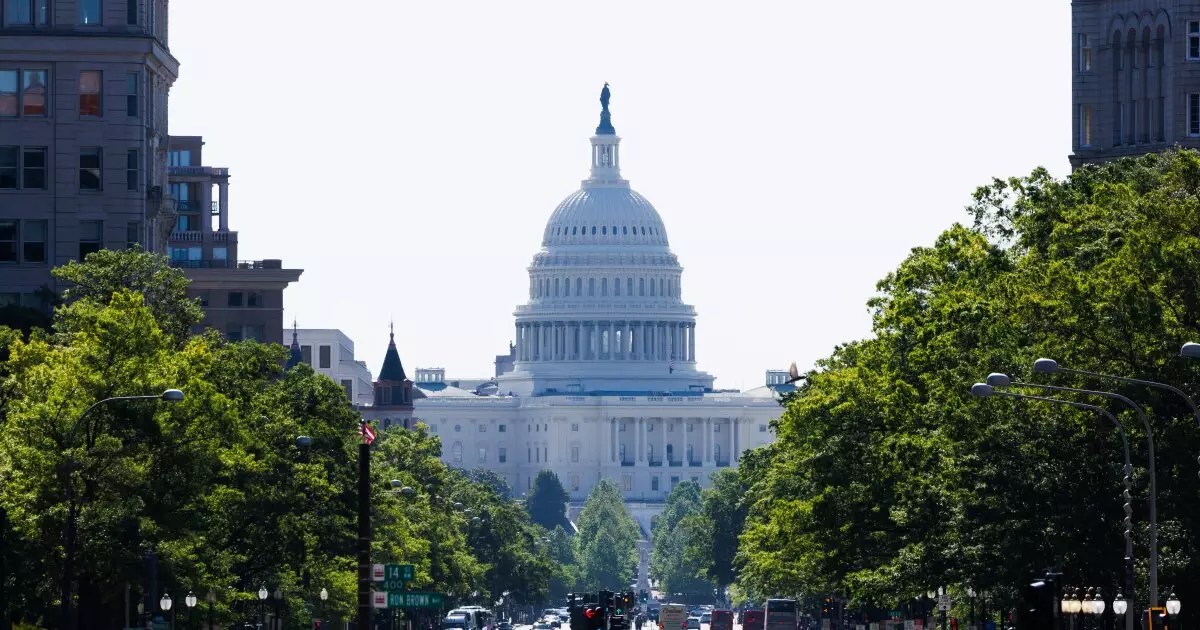In a striking move that could alter the American financial landscape, the House Ways and Means Committee recently unveiled a preliminary draft of a tax plan that seeks to solidify the tax cuts enacted in 2017. Dubbed the “big beautiful bill,” the proposal carries an alarming price tag of $5 trillion and raises numerous concerns regarding fiscal responsibility. As a supporter of center-right policies, I find this reckless spending to be a dangerous trajectory for our economy, especially given the already burgeoning national debt.
Tax Cuts with Hidden Costs
At first glance, the extension of provisions that benefit those in the workforce and families appears commendable. The draft aims to make permanent certain tax cuts, including enhancements to the child tax credit and modifications to the alternative minimum tax. However, the glaring omission of revenue offsets raises red flags. If Congress aims to implement such sweeping changes without identifying a sustainable financial framework, we are setting ourselves up for an economic implosion. Tax breaks should not be funded by the erosion of other critical financial pillars, like the tax-exempt status on municipal bonds—a situation municipal bond markets fear could transpire.
The Ways and Means Committee has expressed enthusiasm, with Chairman Jason Smith proclaiming these provisions as “pro-family, pro-worker.” Yet, when economic policies prioritize short-term relief over long-term sustainability, we risk becoming a house of cards. Will these so-called astute financial moves ultimately burden families if adjustments in broader fiscal policy are not considered?
The SALT Dilemma
Further complicating matters is the debate surrounding the SALT (State and Local Tax) deduction cap, particularly for high-tax states. Lawmakers from these regions—the so-called SALT Caucus—demand adjustments to the cap before expressing their approval for the reconciliation bill. Ignoring the state and local tax deduction in the draft demonstrates a lack of sensitivity to regional policies that vary widely from coast to coast.
It appears that negotiations are rampant behind closed doors, with high-stakes discussions scheduled to take place shortly after the draft’s release. It’s essential to recognize that these discussions are not merely procedural; they could very well define the direction of fiscal policy for years to come. A failure to reconcile these concerns could alienate those pivotal lawmakers, putting the bill’s passage at risk and compromising the potential benefits these tax cuts could hold for hardworking families across the nation.
Implications of the Deficit
One of the most alarming aspects of the draft is the fiscal impact it might have on the national deficit, which is projected to swell by $5 trillion through 2034. This figure exceeds the budget resolution limits established just months prior and is a stark warning sign that we are risking more than fiscal credibility. The Committee for a Responsible Federal Budget has noted that the costs might be 50 to 60 percent higher compared to simply maintaining the tax cuts currently in place.
Our financial integrity should never hinge upon reckless expansion of government spending. It’s crucial to resonate with the reality that deficit increases are an invitation to higher taxes in the future, burdens that will inevitably weigh heavily on the shoulders of the middle class, the very demographic that policymakers profess to protect.
A Call to Responsible Governance
As the legislative process moves forward, with House committee meetings scheduled to iron out discrepancies, the focus must shift towards responsible governance. The economic climate demands precision, nuance, and a firm commitment to ensuring that any proposed legislation will genuinely foster growth without crippling future generations with insurmountable debt.
In the broader context of the economy, leaving fiscal responsibility in the rearview mirror sends a troubling message that shortsightedness reigns supreme in Washington. The proposed tax bill is emblematic of this broader trend; it is yet another reminder that we must encourage our leaders to prioritize long-term sustainability over the fleeting allure of immediate relief. The American people deserve more than just a temporary fix; they deserve a robust economy built on sound principles that honor their hard work and sacrifice.


Leave a Reply